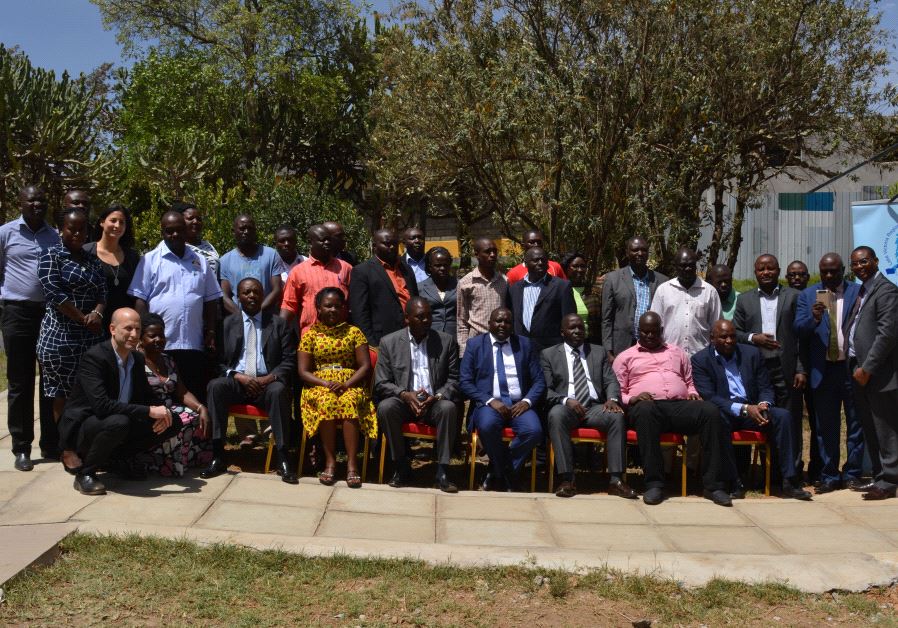Israeli urban tech-integrator brings smart city management to East Africa
The first city in the region is slated to have a pilot innovation hub up and running by the end of the year.
 A group photo with mayors and directors of city councils from Kenya and Uganda(photo credit: SHIRLEY BEN-DAK)Updated:
A group photo with mayors and directors of city councils from Kenya and Uganda(photo credit: SHIRLEY BEN-DAK)Updated: